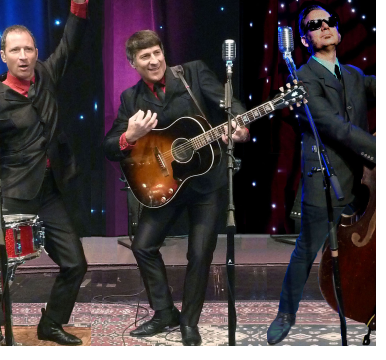Politics in Japan, just like in the United States currently, can be a tricky subject to discuss with people one does not know well, but it is a topic that often comes up in conversations because people are interested in how governments and elections function. On visits home, I am often asked about Japanese politics and the election cycles in Japan.
In short, the Japanese political system follows the tradition of a dominant-party parliamentary constitutional monarchy, similar to the system in Great Britain. While the Emperor is the head of state, the Prime Minister is the head of government and his/her affiliated party is the “ruling party.” The head of government also is in charge of the cabinet which basically runs the government as the executive branch.
The legislative branch in Japan is called the National Diet and this body of legislators is made up of the House of Representatives and the House of Councilors. The members of each house then make up standing committees in each body that does the bulk of the governmental duties and work. Since both houses consist of elected members by the people, they represent the citizens in their daily legislative activities.
The lower house, or House of Representatives, is the most powerful of the two houses because it can force the resignation of a Prime Minister and it controls the government’s budget, it can make treaties with other countries, and it chooses the Prime Minister. The function of the upper house, or House of Councilors, is largely to approve bills and legislation sent to them by the lower house. So, the upper house does not make bills or legislation and if they vote down legislation, it can still be passed by overriding the legislation by the lower house.
The judicial branch of government has, at the top, the Supreme Court and its power is to oversee the lower courts. The 1947 Constitution, which was enacted during the Occupation of Japan by the United States, replaced the previous Meiji Constitution, which afforded Japan the ability to have a Constitutional Monarchy coupled with a system of civil law that is based on democratic principles.
In the post-World War II era, by far, the major political party in power has been the Liberal Democratic Party (LDP). While Japan enjoys a multi-party system of politics, the LDP has dominated power during much of the period after World War II, until in 1993, when the conservative LDP lost its Diet majority and power. This was largely due to a faction of LDP members defecting to start a new party leaving the LDP without a majority.
The Japan New Party was an eight-party coalition, but was short lived and could only maintain power for around a year. This was a huge deal because the LDP had held on to control for some 40 years up to then. The slightly center-left party, the Democratic Party of Japan (DPJ), played an important role as the “opposition party” from 1996, and gained power through a coalition from 2009 through 2012. Other than these two brief periods, the LDP has maintained a very strong hold on Japanese politics.
As a child of the 60s and 70s in the U.S., we were taught to fear communism and communists, so when I moved to Japan and met “out and proud” communists, it was a bit of a culture-shock at first because I had been conditioned to fear and despise communists due to the Cold War and anti-communist sentiment in the Unites States. The Japanese Communist Party has a platform that emphasizes the establishment of a democratic society based on scientific socialism and pacificism. Unlike other communist systems in the world, it does not advocate violent revolutions to achieve its political goals. While it recognizes the Emperor as the Head of State and his constitutional position, they are very much against any change in policies that would allow the Imperial family to become involved in politics. The JCP is ardently anti-militaristic and would like to dissolve completely Japan’s Self-Defense Forces. So, with that said, it isn’t keen about the United States having such a strong military presence in Japan with the bases.
The campaign cycle in Japan is much shorter and much less costly than that of the United States. There are very strict rules in Japan regarding campaigning and advertising by candidates. Candidates are only allowed a campaign vehicle and a small number of posters and campaign materials that they are allowed to distribute.
One feature that surprises people from other countries is how noisy the campaign cycle is. The custom and trend is for candidates to be driven around their constituencies with a loud bull horn where they repeat their names over and over, pleading for anyone listening to vote for them. One custom I found strange when I lived in Aomori in northern Japan was how the candidate usually rode around in a mini-van with a gaggle of beautiful women all dressed alike who waved incessantly at passersby on the streets from the windows of the van. I guess the idea was that people would be impressed with an old man who was surrounded by such young and beautiful women? I found it creepy, to be honest.
Just a couple of weeks before an election, signboards are put up in strategic places (often near train stations) where the candidate can post one of his/her campaign posters. They are always the same size and generally contain the same information, usually highlighting their main policy issues briefly. Since advertising by candidates is so tightly controlled by strict governmental rules, it does keep the playing field fairer and more level because while running for office in Japan can be an expensive undertaking, it never is anywhere near the amount of money spent on local or national elections in the United States.
Granted, during the roughly 12 days candidates are allowed to campaign, the noise pollution is deafening, especially when two vans happen upon the same street at the same time. The competing candidates turn up the volume, so to speak, to drown out his/her opponent.
Due to the strict rules, there is not a lot of radio or television appearances and definitely no attack ads being played every few minutes like in the US. In fact, I’m not aware of any “negative campaigning” by candidates other than a soundbite of how they would try to do better on certain issues than their opponent. Mudslinging would be considered uncouth and unseemly, I think, so candidates focus more on their attributes and how they will try to accomplish the issues they find important rather than trying to tear down their opponent with dirty tricks.
That, however, is not to say that dirty tricks don’t happen in Japan, because they definitely do. Politics are politics and dirty underhanded politics seem to be a global, universal fact, sadly.
Get the most recent Shelby County Post headlines delivered to your email. Go to shelbycountypost.com and click on the free daily email signup link at the top of the page.







